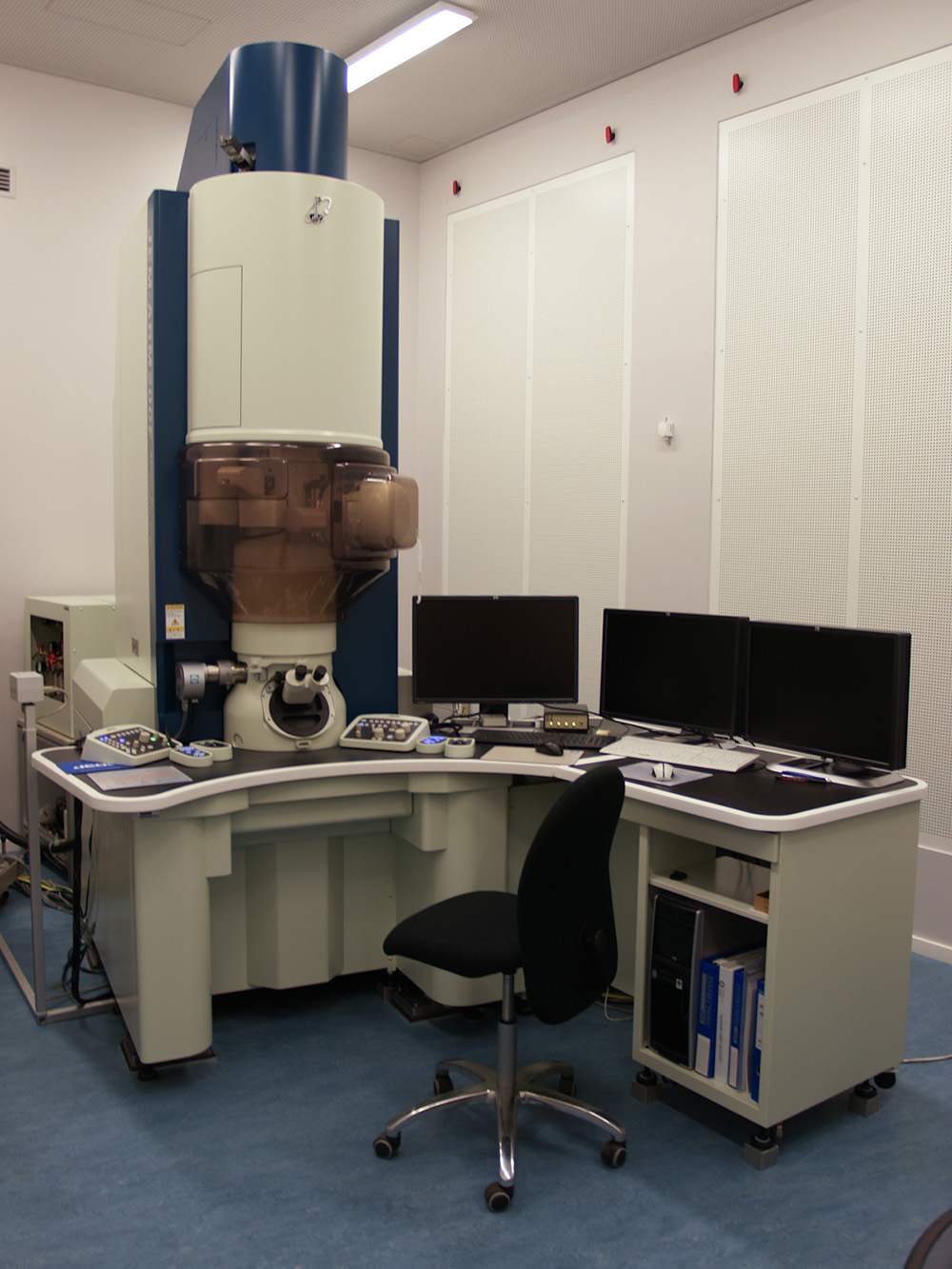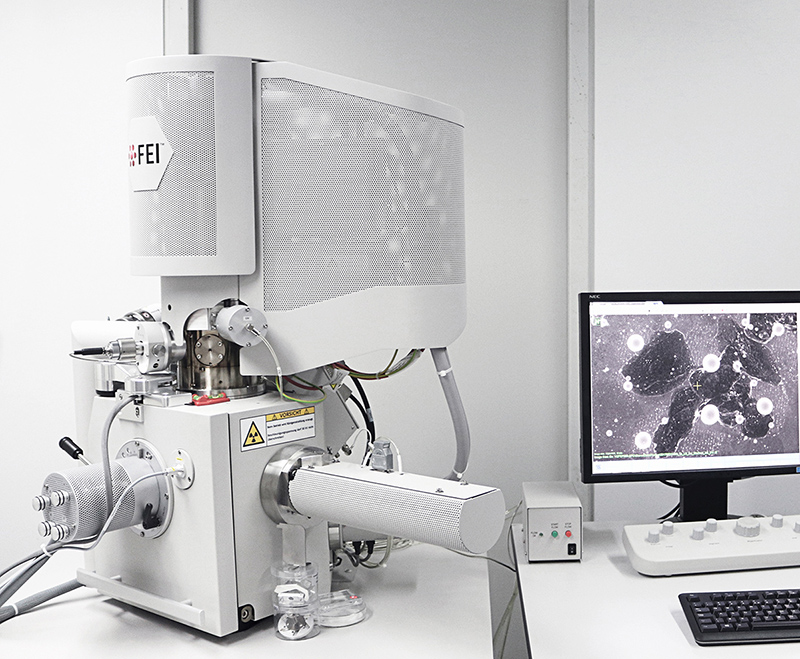Arm200

The Innovative Electron Microscopy group at the INM – Leibniz Institute for New Materials operates a high-resolution transmission electron microscope (TEM, ARM200F, JEOL) with scanning TEM (STEM) mode and a spherical aberration corrector of the STEM probe (CEOS). The system includes a combined energy filter and an electron energy loss analyzer (EELS, Gatan), it is also equipped with an energy dispersed X-ray analysis (EDX) system (JEOL). The microscope has a cold field emission source so that a low energy spread of 0.3 eV can be achieved. The microscope combines a spot size of 0.08 nm with a probe current of 200 pA.
One unique quality is its capability to study samples in liquid using a special sample holder (we operate the Poseidon system of Protochips, as well as the Ocean system of DENS Solutions).
The microscope is available for research projects of all groups at the INM. We also accommodate various external projects, for example, with researchers at Saarland University, and the University of Bayreuth, see: Nat. Catal. 2, 71 (2019).
ESEM

Our group runs an environmental scanning electron microscope (ESEM, QUANTA 250 FEG, FEI). The instrument is a scanning electron microscope with a Schottky emitter for examinations in a high vacuum (<10-5 Pa), low vacuum (up to 200 Pa) and ESEM (up to 2000 Pa) mode. Gaseous secondary-electron detector, backscattered-electron detector, and STEM detector for all vacuum modes. The system also includes a Peltier stage for cooling the sample to image samples in a thin layer of water compatible with STEM detection.
Fluorescence microscope

Our lab houses a fluorescence microscope (DMI6000B, Leica). It is a fully motorized inverted fluorescence and interference contrast microscope including high-resolution water immersion and oil lenses, high speed operation, continuous autofocus, cell incubator for live cell imaging, micromanipulator and injector, software for time-resolved imaging, and 3D imaging including deconvolution.